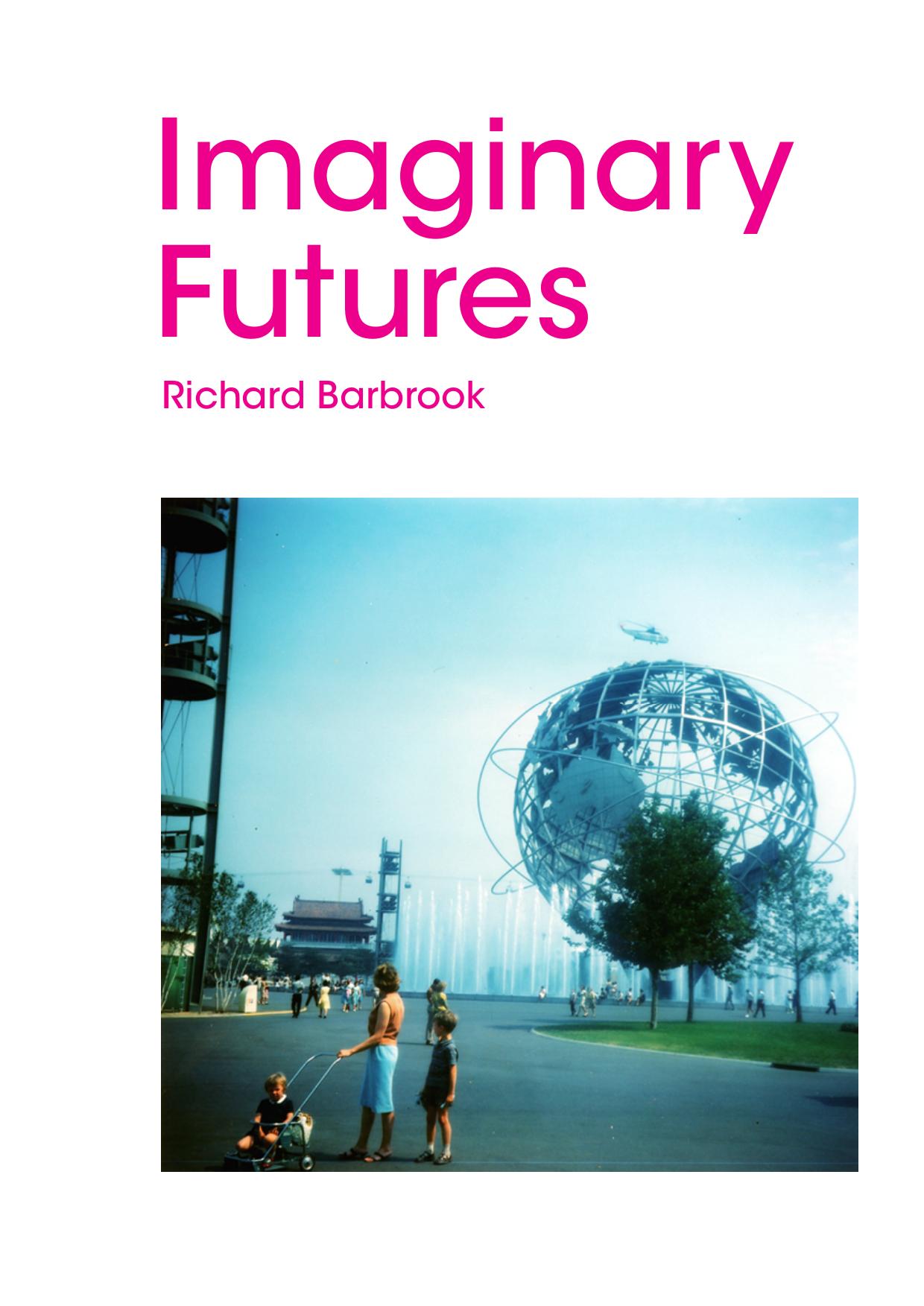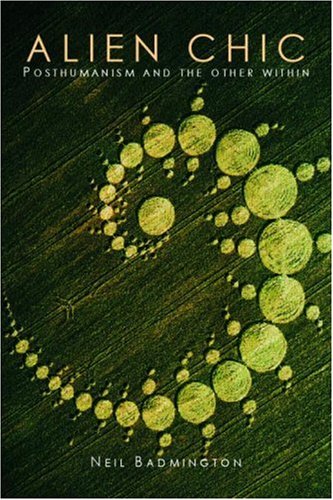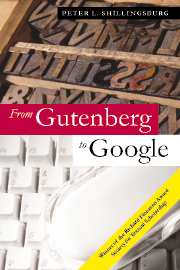Richard Barbrook: Imaginary Futures: From Thinking Machines to the Global Village (2007)
Filed under book | Tags: · artificial intelligence, computing, control society, cybernetics, gift economy, history of computing, history of technology, information society, internet, politics

“Cooperative creativity and participatory democracy should be extended from the virtual world into all areas of life. This time, the new stage of growth must be a new civilisation.
Richard Barbrook traces the early days of the Internet, beginning from a pivotal point at the 1964 World’s Fair, in what critics are saying is the most well-researched and original account of cybertechnology among contemporary works. He demonstrates how business and ideological leaders put forth a carefully orchestrated vision of an imaginary future, where robots would do the washing up, go to the office and think for us. With America at the forefront of these promises, Barbrook shows how ideological forces joined to develop new information technologies during the Cold War era and how what they created historically has shaped the modern Internet, with intended political consequences.
Crucially, he argues that had the past been different, our technological and political present would not be what it is today. Barbrook’s conclusions about the modern state of the Internet, puts forward a call for action in how the world’s most important tool of revolutionary politics should be approached.”
Key terms: Fordism, W.W. Rostow, Marxism, cybernetic, Bell commission, artificial intelligence, gift economy, Stalinist, Maoist, Cold War game, Trotskyist, information society, laissez-faire liberalism, soft power, Hard power, American empire, Tet Offensive, Unisphere, grand narrative, Cold War Left
Publisher Pluto, 2007
ISBN 0745326609, 9780745326603
334 pages
Book website
Video introduction
Publisher
PDF, PDF (13 MB, updated on 2012-7-15)
Comments (3)Neil Badmington: Alien Chic: Posthumanism and the Other Within (2004)
Filed under book | Tags: · alien, extraterrestrial, posthumanism

“Alien Chic sets out to provide a cultural history of the alien since the 1950s, asking why our attitudes to aliens have changed from fear to affection, and what this can tell us about how we now see ourselves and others.
The author begins by exploring our relationship with the concept of aliens, primarily through films, including Invaders from Mars, Mars Attacks and Mission to Mars. He then progresses to ideas of humanism and what makes us human, taking in the works of thinkers such as Descartes, Barthes, Freud, and Derrida.
The book then considers the concept of posthumanism in an age in which the lines between what is human and what is non-human are increasingly blurred by advances in science and technology, for example cloning and genetic engineering, and the development of AI and cyborgs. This leads to the question of whether our embracing of all things ‘alien’ stems from a need to reaffirm ourselves as “human.”
Written in a clear and engaging style, Alien Chic is an original and thought-provoking contribution to the study of posthumanism.”
Publisher Routledge, 2004
ISBN 0415310237, 9780415310239
203 pages
Key terms: posthumanism, extraterrestrial, Jacques Derrida, Mars Attacks, Invaders from Mars, Body Snatchers, Starship Troopers, hashish, anthropocentric, Jacques Lacan, Independence Day, Don Siegel, invasion films, Katherine Hayles, Descartes, Mission to Mars, Whitley Strieber, alien abduction, Jean Baudrillard, posthumanist
PDF (updated on 2012-7-24)
Comment (0)Peter L. Shillingsburg: From Gutenberg to Google: electronic representations of literary texts (2006)
Filed under book | Tags: · internet, literature, text

As technologies for electronic texts develop into ever more sophisticated engines for capturing different kinds of information, radical changes are underway in the way we write, transmit and read texts. In this thought-provoking work, Peter Shillingsburg considers the potentials and pitfalls, the enhancements and distortions, the achievements and inadequacies of electronic editions of literary texts. In tracing historical changes in the processes of composition, revision, production, distribution and reception, Shillingsburg reveals what is involved in the task of transferring texts from print to electronic media. He explores the potentials, some yet untapped, for electronic representations of printed works in ways that will make the electronic representation both more accurate and more rich than was ever possible with printed forms. However, he also keeps in mind the possible loss of the book as a material object and the negative consequences of technology.
Published by Cambridge University Press, 2006
ISBN 0521864984, 9780521864985
216 pages
Key terms: SGML, Textual Criticism, Jerome McGann, Vanity Fair, textual scholar, William Makepeace Thackeray, ASCII, text files, Text Encoding Initiative, W. W. Greg, comparison computer program, Stijn Streuvels, typesetting, English Literary Studies, Victorian fiction, University of Michigan, computer files, JITM, W. M. Thackeray, Malcolm Lowry
More info (google books)
More info (publisher)

